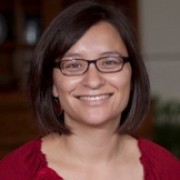
 Kim Yi Dionne is Five College Assistant Professor of Government at Smith College. She studies identity, public opinion, political behavior, and policy aimed at improving the human condition, with a focus on African countries.
Kim Yi Dionne is Five College Assistant Professor of Government at Smith College. She studies identity, public opinion, political behavior, and policy aimed at improving the human condition, with a focus on African countries.
This post is part of our Friday Afrobarometer series, which highlights findings from the pan-African, nonpartisan research network that conducts public-attitude surveys on democracy, governance, economic conditions and related issues in more than 35 countries in Africa.
Fifty years since the United Nations enshrined the right to freely assemble, how free are citizens in African countries to join any political organization they want? The answer depends on the country, according to a dispatch released today by Afrobarometer.
The dispatch’s release commemorates a half-century since the United Nations adopted the International Covenant on Civil and Political Rights, which formalized — among other civil rights — the right of citizens to freely assemble.
Afrobarometer measures citizens’ perceptions of freedom to assemble by asking: “In this country, how free are you to join any political organization you want?” Survey participants could answer completely free, somewhat free, not very free or not at all free.
On average, across the 36 African countries where Afrobarometer conducts its nationally representative public opinion surveys, a majority (58 percent) reported that they feel “completely free” to join any political organization they want.
But citizens’ perceptions of freedom to assemble varied across the continent. While 85 percent of Senegalese felt completely free to join political organizations, only 7 percent felt that same way in Swaziland.

Why is Swaziland so far below its peers in Africa in protecting its citizens’ freedom to assemble?
Plainly, Swaziland is not a democracy. It holds elections and has a parliament, but real power is vested in the last absolute monarch in Africa, King Mswati III. King Mswati III has ruled Swaziland since 1986, a couple of years after the death of his father, King Sobhuza II.
In its rankings of freedom around the world, Freedom House scored Swaziland as “not free” because of its restrictions on speech, media, trade union organizing and political parties. Opposition political parties have been banned in Swaziland since 1973, though some exist (e.g., PUDEMO).
While nondemocratic, Swaziland’s 2005 constitution enshrines the freedom to peaceful assembly in its list of “fundamental rights and freedoms” — what analysts have dubbed the Swazi bill of rights. Although Swazis have these rights and freedoms in theory, in practice they do not.
In a briefing published earlier this year in the “Review of African Political Economy,” Bongani Masuku and Peter Limb report on multiple violations of citizens’ freedoms in Swaziland. Specific to the Swazi government’s limitations on the freedom of association, they cite police surveillance of labor and student movements and the banning of unions.
One example Masuku and Limb share is the violent attack by police of a leader in a teachers’ union at a union meeting. As the union was assembling for the meeting, the police ordered participants to disperse, and so they retreated to a bus. Police forced entry into the bus and removed the leader, who reported:
… they grabbed me and pulled me out of the vehicle. They then dragged me for about 20 metres from the bus before they started kicking me all over the body. While sprawled on the turf, someone kicked me in the mouth.
The government draws on powers from the 2008 Suppression of Terrorism Act to harass and arrest leaders of civil society organizations and to disperse protests. The government even used force against pro-democracy demonstrations in 2011.
Harassment and violent repression by the state in Swaziland has been a clear signal to Swazi citizens. It is perhaps even a wonder that as many as 7 percent feel completely free to join any political organization they want.

